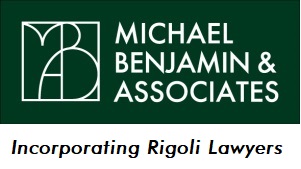How to Avoid the Pitfalls of Property Co-Ownership in Victoria.
Steadily increasing Melbourne house prices have meant that, for many people, buying property in the current market is little more than a pipe dream. While Co-Ownership (involving two or more owners) is an effective way to purchase property, it is best to be fully aware of the legal and financial benefits, risks, and possible pitfalls, before entering into such an agreement.
Joint Tenancy
Traditionally, most legally married couples purchase their family home or investment property under a ‘Joint Tenancy’ agreement. Each person on title holds the one property with no distinction between the shares.
Tenants In Common
The other option is a ‘Tenants In Common’ agreement, where the owners’ can have equal or unequal shares in the property, usually dependent on the amount contributed. This is particularly common for:
-De facto couples
-Those entering into second marriages, and blended families, (particularly if there are adult children involved)
-Family members or friends who buy property together
-Legal spouses who wish to distinguish the share of the property they own (whether equal or unequal)
Legal Implications of Co-Ownership
The way you are registered on title depends on what happens to that property if one owner dies. Tenants In Common does not have Right of Survivorship whereas Joint Tenancy does. Under this Right, the property is automatically passed to the other Joint Tenant if one owner dies, even if the Will of the deceased owner states differently.
A Tenants in Common partner can sell their shares in the property or bequeath (gift them in a Will) to someone other than the existing title owners.
Stamp Duty and Title Transfers
Spouses and de facto couples who Co-Own property should also be aware of Stamp Duty implications.
Stamp Duty is not applied any time that married, or de facto couples transfer the title of their family home (principal place of residence) from Joint Tenancy to Tenants In Common, so long as they remain a couple.
Stamp Duty will be charged if they alter the way couples own the property on title of an investment property.
Asset Protection and Co-Ownership
From an asset protection perspective, it is often better to own property as Tenants In Common. This way, each share of the property can be protected through the directions of the owners’ Wills (usually directed to a testamentary trust).
This situation also arises when the property is owned by one spouse because the other has a business, but still has an interest in the property because of the marriage.
While there are legal implications to be aware of, it’s also important to consider the benefits and risks involved in co-owning property.
Advantages of Property Co-Ownership
Ability to combine individual deposit savings and income (and, therefore, secure a higher loan) can:
-Be a helpful way to enter the property market for primary residence or investment purposes
-Increase your options for the type and location of property you can afford
-Reduce transaction fees and ongoing maintenance costs
Risks of Property Co-Ownership
Divorce or a change in financial circumstances can also have a huge impact on property owners involved in either agreement. Problems may arise when an owner (or owners):
-Wish to sell their shares
-Default on repayments or refuse to share costs
-Look to borrow more – as their future individual borrowing capacity may be reduced
Legal advice is imperative to protect you against risk
Reduce Risks with Legal Advice
When buying property with other people, choose your partners carefully. Discuss your financial, personal and property purchase expectations, research the property market, and get mortgage advice to ensure you choose the right loan for you. Document all the details – just in case they are needed down the track.
Always speak to your lawyer or solicitor and accountant before entering to a Joint Tenancy or Tenant In Common agreement.
They will look at the worst-case scenario for your individual situation and draw up an agreement to cover all potential issues. This will create complete clarity and understanding of your commitment and expectations, and should also encompass an Exit Strategy, to prepare for those ‘it won’t happen to me’ events.
Thinking about property co-ownership? Our service-focussed team will provide you with comprehensive legal and strategic advice for all your property law needs. Contact us to find out more.

